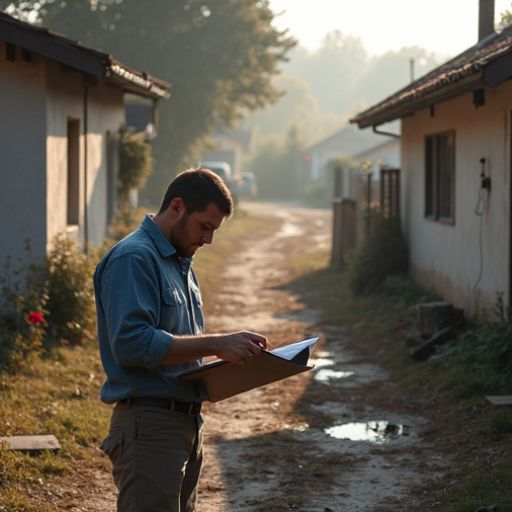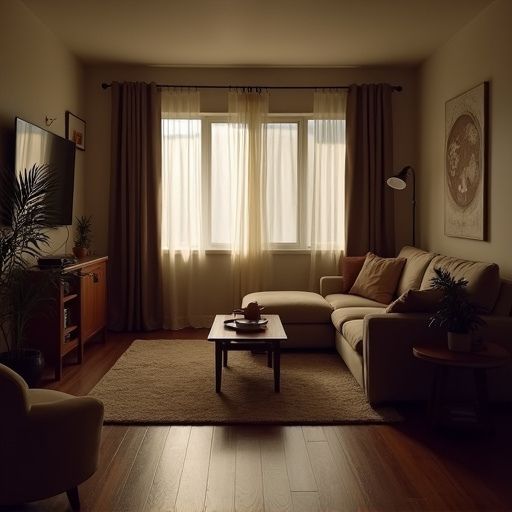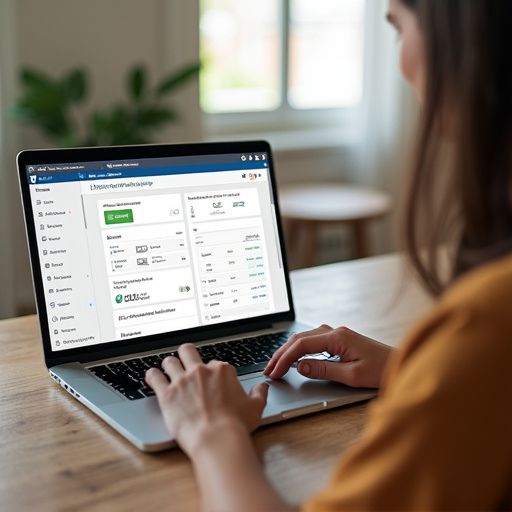25 Simple Habits of Highly Successful Renters
You’ll quickly discover that successful renting isn’t just about making monthly payments on time.
It’s a strategic approach that combines financial savvy, interpersonal skills, and organizational prowess.
While many tenants focus solely on affording the rent, those who truly excel in the rental market have developed specific habits that set them apart from the average renter.
These proven practices not only protect your interests but also position you as an ideal tenant that landlords want to keep.
Let’s explore the essential habits that can transform your renting experience and secure your future in today’s competitive housing market.

Pay Rent Before Due Date
Although paying rent on time might seem obvious, submitting your payment before the due date demonstrates exceptional financial responsibility and helps build a positive relationship with your landlord.
You’ll establish yourself as a trustworthy tenant while gaining peace of mind knowing your housing is secure.
Set up automatic payments through your bank or landlord’s payment portal to guarantee you’re never late.
If you prefer manual payments, schedule them 3-5 days before the due date to account for processing times and potential banking delays.
Keep detailed records of all transactions, including confirmation numbers and receipts.
Document All Property Damage

Taking photographs of every scratch, dent, and imperfection throughout your rental property during move-in creates an essential record to protect your security deposit.
Document the date and time of each photo, and immediately email them to your landlord or property manager for confirmation.
Don’t forget to keep copies for your records.
Create a detailed written inventory to accompany your photos.
Note specific damage locations, sizes, and descriptions for walls, floors, appliances, fixtures, and outdoor areas.
You’ll want to capture both close-up and wide-angle shots of each issue.
When you move out, this documentation becomes your evidence that you’re not responsible for pre-existing damage.
It’s a proven strategy that helps you avoid disputes and guarantees you’ll get your full deposit back.
Read Lease Agreements Thoroughly
While documenting property damage protects your deposit, understanding your lease agreement safeguards your entire tenancy.
Don’t skip over any sections, even if they seem standard.
Pay special attention to policies regarding subletting, maintenance responsibilities, pet restrictions, and lease termination requirements.
Mark important dates, including when rent’s due, notice periods for moving out, and lease renewal deadlines.
You’ll want to highlight any clauses about rent increases, utilities, parking, or guest policies.
If you spot confusing language or concerning terms, don’t hesitate to ask your landlord for clarification before signing.
Keep a digital copy of your signed lease accessible, and reference it whenever questions arise about your rights or responsibilities.
Understanding your lease empowers you to exercise your rights and avoid costly misunderstandings during your tenancy.
Keep Communication Records

Throughout your tenancy, maintaining detailed records of all landlord communications serves as your best protection against disputes.
Keep copies of every email, text message, and written correspondence exchanged with your property manager or landlord.
Document the date, time, and content of phone calls or in-person conversations in a dedicated notebook or digital file.
Take photos of maintenance requests, damages, and repairs, adding timestamps and brief descriptions.
Save rent payment receipts, maintenance work orders, and inspection reports.
Create a digital backup of these records using cloud storage or email.
When you need to address issues with your landlord, reference specific dates and documented conversations to support your position.
These organized records will protect your interests during security deposit disputes, lease renewals, or potential legal situations.
Build An Emergency Fund
A strong financial safety net proves just as important as maintaining thorough records.
Set aside three to six months of rent and living expenses to protect yourself from unexpected financial challenges.
You’ll want enough to cover rent, utilities, food, and essential bills if your income temporarily stops.
Start by automatically transferring 10% of each paycheck into a dedicated savings account.
If you can’t manage 10%, begin with 5% and gradually increase it.
Keep this emergency fund separate from your regular checking account to avoid dipping into it for non-emergencies.
You’ll gain peace of mind knowing you can handle surprise expenses like medical bills, car repairs, or temporary job loss without risking eviction.
This financial buffer gives you the freedom to make strategic decisions rather than desperate ones.
Get Renters Insurance

Despite common misconceptions, your landlord’s property insurance doesn’t protect your personal belongings.
When disasters strike – whether it’s a fire, theft, or water damage – you’ll need your own coverage to replace your possessions and maintain your lifestyle.
Renters insurance typically costs between $15-30 per month and covers three essential areas: personal property protection, liability coverage, and additional living expenses.
Your policy will protect your furniture, electronics, clothing, and valuables against covered perils.
The liability portion safeguards you if someone gets injured in your rental unit, while additional living expenses cover temporary housing if your apartment becomes uninhabitable.
Don’t wait for an emergency to realize the value of renters insurance. Shop around, compare quotes, and choose a policy that matches your needs and budget.
Report Maintenance Issues Promptly
Staying on top of maintenance concerns proves essential for protecting both your living space and your relationship with the landlord.
You’ll want to document any issues immediately through your property’s approved communication channels, whether that’s an online portal, email, or written maintenance request form.
Don’t wait to report problems like leaky faucets, electrical issues, or pest infestations.
Small issues can quickly escalate into major problems that could damage your belongings or create liability concerns.
Take photos of the problem areas and keep copies of all maintenance requests and follow-up communications.
If you don’t receive a timely response, follow up professionally but persistently.
Remember that prompt reporting also protects you from being held financially responsible for damage that worsens due to delayed maintenance – it’s your right as a tenant to have repairs addressed.
Respect Quiet Hours

Living harmoniously in a rental community means adhering to quiet hours and noise regulations.
Most properties enforce quiet hours between 10 PM and 8 AM, during which you’ll need to minimize noise from music, TV, conversations, and household activities.
You’ll build better relationships with your neighbors and property manager by following these practical guidelines:
Keep your TV and music volume at 50% or lower during quiet hours, avoid running appliances like washers or vacuum cleaners late at night, and don’t host gatherings that extend into quiet hours.
If you’re planning an event that might get noisy, notify your neighbors in advance and consider wrapping it up before quiet hours begin.
Clean Regularly
Regular cleaning sets you up for rental success and helps maintain your security deposit.
Create a weekly cleaning schedule that covers basic tasks like vacuuming, dusting, and bathroom sanitization.
Don’t let dishes pile up in the sink, and wipe down kitchen counters daily to prevent pest problems.
Pay special attention to high-traffic areas and spots that landlords typically inspect, such as windowsills, baseboards, and appliances.
Address spills and stains immediately to prevent permanent damage.
You’ll also want to document your cleaning efforts with photos, especially for deep-cleaning tasks like oven maintenance or carpet shampooing.
Remember to check your lease agreement for specific cleaning requirements, and consider scheduling quarterly deep cleans.
This proactive approach prevents small issues from becoming costly problems and demonstrates your reliability as a tenant.
Take Move-In Photos

A smartphone’s camera becomes your most valuable asset on move-in day.
Take detailed photos of every room, wall, corner, appliance, and existing damage before moving in your first box.
Don’t forget to document window screens, door frames, baseboards, and flooring conditions.
Create a digital folder specifically for these images, and make sure they’re date-stamped.
Email copies to yourself and your landlord immediately, confirming receipt. This creates a clear paper trail and timestamp of the unit’s original condition.
You’ll need these photos if there’s ever a dispute about your security deposit or property damage claims.
Focus on capturing both close-up shots of specific issues and wide-angle views of entire spaces.
Pay special attention to any scratches, dents, stains, or maintenance concerns that existed before your tenancy.
Know Your Tenant Rights
Through every stage of renting, understanding your legal rights as a tenant serves as your strongest protection.
Familiarize yourself with your state’s specific tenant laws regarding security deposits, maintenance responsibilities, privacy rights, and eviction procedures.
Don’t rely solely on your landlord’s interpretation of these laws.
Review your local housing authority’s guidelines about rent increases, lease terminations, and safety requirements.
You’re entitled to a habitable living space that meets basic health and safety standards.
Know the proper channels for filing maintenance requests and the expected response times.
Maintain records of all communications with your landlord, especially those concerning repairs or lease terms.
If you encounter issues, you’ll need to understand the legal timeframes for notices, your right to withhold rent, and when to seek legal assistance.
Maintain Good Credit Score

Maintaining excellent credit status plays a vital role in your success as a renter.
Your credit score directly impacts your rental applications, security deposit requirements, and even your negotiating power with landlords.
To keep your credit score strong, make all bill payments on time, including utilities, credit cards, and loans.
Set up automatic payments to avoid late fees and credit dings.
Keep your credit utilization below 30% of your available credit, and don’t close old credit accounts unless necessary.
Monitor your credit report regularly through free services like Credit Karma or annual reports from major bureaus.
If you discover errors on your credit report, dispute them immediately.
Building and maintaining good credit gives you more housing options and strengthens your position when competing for desirable rentals in prime locations.
Be a Courteous Neighbor
Being a good neighbor extends far beyond your credit score and financial responsibilities – it’s a key factor in creating a positive living environment and maintaining a strong relationship with your landlord.
Keep noise levels reasonable, especially during quiet hours, and inform neighbors in advance if you’re planning any gatherings.
Follow building rules for common areas, parking spaces, and waste disposal.
Don’t leave personal items in shared spaces or block walkways.
If you have pets, clean up after them promptly and control their behavior.
When issues arise with neighbors, address them directly and professionally before escalating to management.
Remember that your behavior affects your rental references – landlords often consider tenant relationships when writing recommendations.
Create a Rental Resume

A well-crafted rental resume can greatly boost your chances of securing your ideal rental property.
Include your employment history, income details, previous rental addresses, and references from past landlords.
You’ll want to highlight your track record of timely payments and property maintenance.
List your current employer, position, and length of employment, along with any additional income sources.
Add your credit score range and mention if you’ve got rental insurance.
Include your pets’ information, if applicable, with documentation of vaccinations and training.
Don’t forget to add character references from employers or professionals who can vouch for your reliability.
Keep your rental resume to one page, organized with clear headings.
Update it regularly and have digital copies ready to submit quickly when you spot the perfect rental opportunity.
Save for Security Deposits
Three key elements make up a successful security deposit strategy: planning ahead, strategic saving, and understanding local requirements.
You’ll typically need to save between one to two months’ rent for your security deposit, plus first month’s rent and sometimes last month’s rent.
Start saving at least six months before your planned move date.
Set up an automated savings transfer to build your fund steadily.
Research your state’s security deposit laws to understand maximum deposit amounts and landlords’ legal obligations.
You’ll gain negotiating power and protect yourself from excessive charges.
Many states limit deposits to 1.5 times monthly rent, while others have no restrictions.
Track market rates in your target neighborhoods to estimate your total move-in costs accurately.
Consider setting aside an additional 10% buffer for unexpected fees or higher deposits on premium properties.
Schedule Regular Property Inspections

While protecting your security deposit upfront is important, maintaining documentation throughout your tenancy proves equally valuable.
Schedule regular property inspections with your landlord every three to six months to document the unit’s condition and address maintenance needs promptly.
During each inspection, take detailed photos and videos of all rooms, focusing on potential problem areas like plumbing fixtures, appliances, and walls.
Create a checklist that notes existing wear and tear, and keep copies of all inspection reports.
Don’t wait for your landlord to initiate these checks – being proactive demonstrates your commitment to maintaining the property.
If you notice any issues between scheduled inspections, report them immediately through your landlord’s preferred communication channel.
This systematic approach protects your interests and helps avoid disputes when it’s time to move out.
Follow Community Guidelines
Living harmoniously in a rental community requires strict adherence to established guidelines and rules.
You’ll protect your interests and maintain positive relationships by following your community’s specific policies on noise levels, pet ownership, parking arrangements, and common area usage.
Make it a priority to thoroughly review your community’s handbook and keep it easily accessible.
Don’t hesitate to ask your property manager for clarification on any rules you find unclear.
Stay informed about updates to policies through community newsletters or resident portals.
You’ll avoid potential conflicts and lease violations by understanding and respecting quiet hours, guest policies, and maintenance procedures.
Remember that these guidelines aren’t meant to restrict your freedom but to guarantee everyone’s comfort and safety.
When you follow the rules, you’ll build credibility with management and strengthen your position as a reliable tenant.
Set Up Utility Auto-Payments

Financial responsibility starts with establishing reliable utility payments for your rental home.
Set up auto-payments through your utility providers‘ online portals to guarantee you never miss a due date.
Most companies offer paperless billing and automatic withdrawal options for electricity, water, gas, internet, and waste management services.
Link your checking account or credit card to these services, but always maintain sufficient funds to cover the charges.
Schedule payments to process a few days after your regular payday to prevent overdrafts.
Review your monthly statements to track usage patterns and spot unusual charges quickly.
Consider using a dedicated checking account for housing expenses to separate these essential payments from your discretionary spending.
This system creates a hands-off approach that protects your rental history and credit score.
Declutter Living Spaces
Maintaining organized living spaces stands as a cornerstone of successful renting.
You’ll find that regularly decluttering your apartment not only maximizes your living area but also helps protect your security deposit by preventing damage from accumulated items.
Start by implementing a “one-in-one-out” rule: whenever you bring in a new item, remove an old one.
Schedule monthly assessments of your closets, drawers, and storage spaces.
You’ll want to sort items into three categories: keep, donate, and discard.
Focus particularly on high-traffic areas like entryways and kitchen counters, where clutter tends to accumulate quickly.
Consider investing in space-saving storage solutions that don’t damage walls, such as tension rods and command hooks.
Document your apartment’s condition during deep decluttering sessions – it’ll prove invaluable during move-out inspections.
Network With Other Tenants

Beyond organizing your physical space, building strong connections with fellow tenants creates a more rewarding rental experience.
You’ll benefit from establishing a reliable support network within your building, which can prove invaluable during emergencies or when you need assistance.
Take initiative by introducing yourself at community events or in common areas.
Exchange contact information with neighbors you trust, and consider joining your building’s resident communication platform or social media group.
You’ll gain insider knowledge about building maintenance schedules, local recommendations, and potential security concerns.
These connections can also lead to cost-saving opportunities through shared resources or group activities.
Remember to maintain professional boundaries while fostering these relationships.
Your fellow tenants can become valuable allies in addressing building-wide concerns or negotiating with property management.
Research Market Rental Rates
Through thorough market research, successful renters stay informed about current rental rates in their desired neighborhoods.
You’ll want to analyze listings on multiple real estate websites, connect with local property management companies, and track pricing trends across seasons.
This knowledge becomes your negotiating power.
Don’t limit yourself to just online research.
Contact local real estate agents who specialize in rentals, attend open houses, and join community social media groups where rental discussions occur.
You’ll gain insights into upcoming lease opportunities and potential rent increases in your area.
Create a spreadsheet to track comparable units, noting square footage, amenities, and price variations.
This data helps you identify fair market value and spots where you might be overpaying.
When it’s time to renew your lease, you’ll have concrete evidence to support your rent negotiations.
Plan for Rent Increases

Smart renters anticipate yearly rent increases and build them into their long-term financial planning.
You’ll want to expect a 3-5% annual increase in most markets, though some areas may see higher jumps.
Factor these increases into your budget now to avoid financial strain later.
Calculate your maximum affordable rent not just for today, but for the next 2-3 years.
If you’re currently paying $1,500 monthly, prepare for it to reach $1,575 next year and $1,654 the following year at a 5% increase rate.
Set aside the difference in a dedicated savings account starting now.
You can also lock in your rate by negotiating a longer lease term or prepaying several months in advance.
These strategies help you maintain control over your housing costs while building financial stability.
Organize Important Documents
Keeping track of rental documents is just as important as managing your rent payments.
Create a dedicated digital and physical filing system for your lease agreement, rent receipts, maintenance requests, move-in inspection reports, and photos of property conditions.
Store these in a secure cloud service and a fireproof box.
You’ll want quick access to your rental insurance policy, security deposit documentation, and any correspondence with your landlord.
Document every interaction, including emails, texts, and phone calls.
Save utility bills and payment confirmations to protect yourself during disputes or when requesting repairs.
Set calendar reminders to review and update your files quarterly.
Having organized records gives you leverage during lease renewals, helps you recover your security deposit, and protects your rights as a tenant.
Screen Potential Roommates

Living with roommates can greatly reduce your rental costs, but choosing the wrong ones creates financial and emotional strain.
To protect yourself, conduct thorough screenings of potential roommates before signing any agreements.
Request proof of stable income, checking their pay stubs or bank statements to verify they can cover their share of expenses.
Run credit checks to assess their financial responsibility, and contact their previous landlords to confirm their rental history.
Don’t skip criminal background checks, which help identify potential safety concerns.
Meet candidates in person and trust your instincts. Ask direct questions about their lifestyle, work schedule, cleaning habits, and guest policies.
Create a detailed roommate agreement that outlines rent payments, utilities, chores, and house rules.
Having everything in writing prevents misunderstandings and protects your interests.
Build Positive Landlord References
Throughout your rental journey, positive landlord references serve as valuable currency for securing future housing opportunities.
To build strong references, maintain consistent on-time rent payments and document them meticulously.
Keep communication professional and respond promptly to your landlord’s messages or maintenance requests.
Take photos of the property’s condition during move-in and move-out, and report maintenance issues immediately to demonstrate your responsible tenancy.
Don’t hesitate to make reasonable repair requests – it shows you’re invested in maintaining the property’s value.
Follow the lease terms precisely, including noise regulations and guest policies.
If you’re planning to make any modifications to the unit, always get written permission first.
These actions create a track record of reliability that landlords will gladly vouch for when you’re ready to move on.
FAQs
How Long Should I Wait Before Introducing Myself to Neighbors?
You’ll want to introduce yourself within the first week of moving in. Don’t wait too long – it creates awkwardness. Make a friendly gesture by knocking on neighbors’ doors or catching them outside during daytime hours.
Is It Worth Getting Additional Locks Installed at My Own Expense?
Better safe than sorry! You’ll want to check with your landlord first, but investing in extra locks is often worth the expense, especially if you’re in an area where security’s a concern.
What Personal Items Should Landlords Never Ask to See?
Your landlord shouldn’t request to see your financial statements, personal documents, medical records, or digital passwords. While they can verify income during application, they don’t have rights to access your private information after lease signing.
How Often Should I Change Air Filters in a Rental Unit?
You’ll want to refresh your air filters every 60-90 days for ideal breathing comfort. If you’ve got pets or allergies, bump it up to monthly changes. Check your lease – some landlords provide replacement filters.
When Is the Best Time to Negotiate a Longer Lease Term?
You’ll have the best leverage to negotiate a longer lease 60-90 days before your current lease expires. Landlords often prefer locking in reliable tenants and may offer reduced rates for extended commitments.
Final Thoughts
When it comes to being a successful renter, you’re on the right track by implementing these proven habits.
They’ll help you stay ahead of the curve and maintain financial stability while building strong landlord relationships.
By following these strategies, you’re not just finding a place to live – you’re creating a solid foundation for your future.
Take these habits to heart, and you’ll see your rental experience flourish.